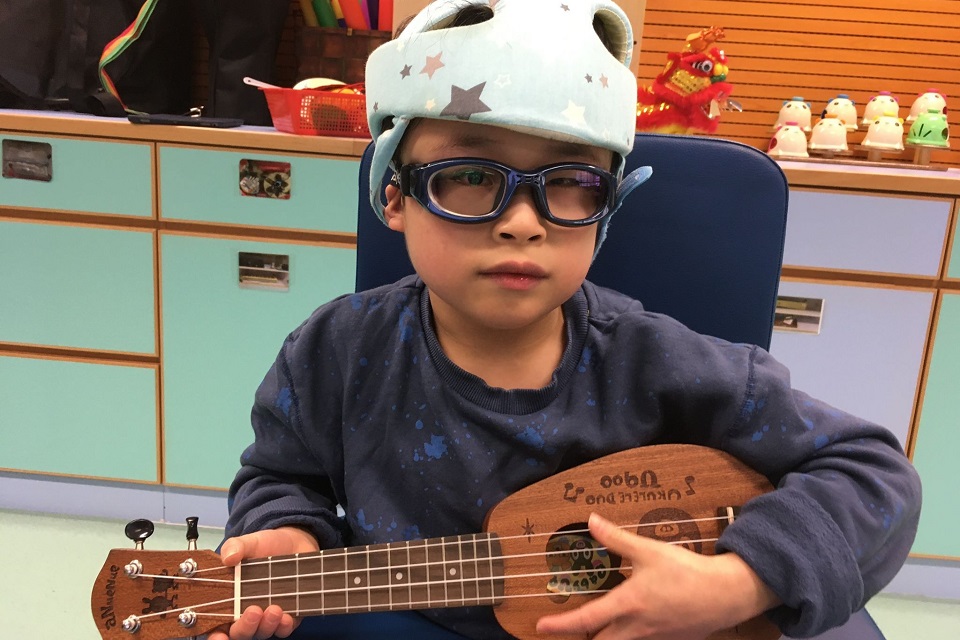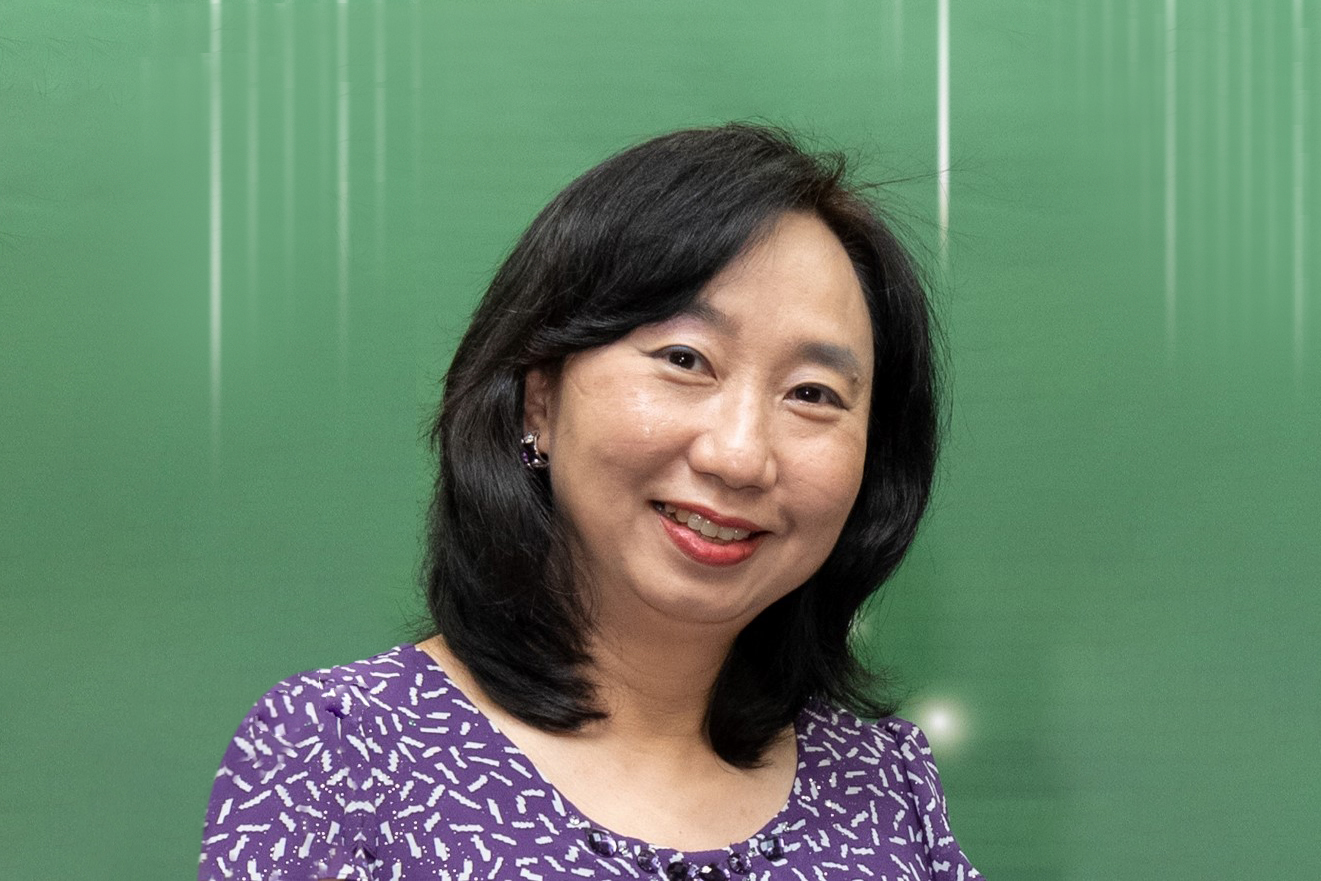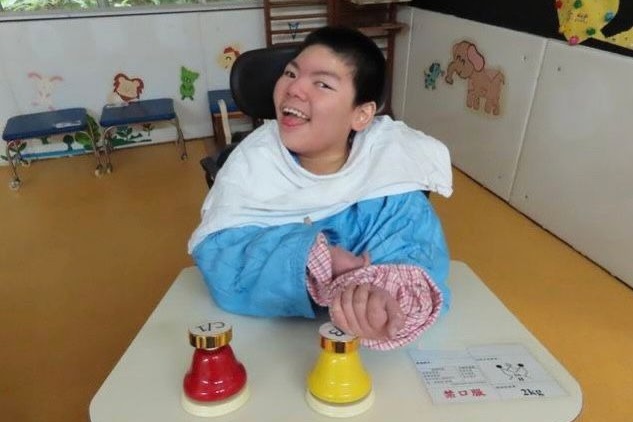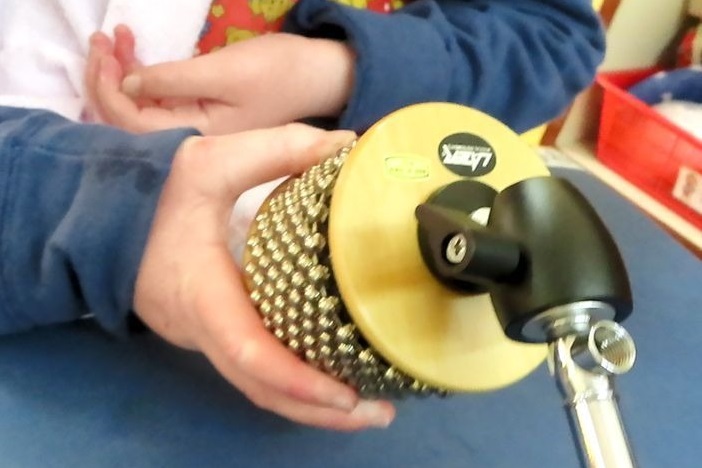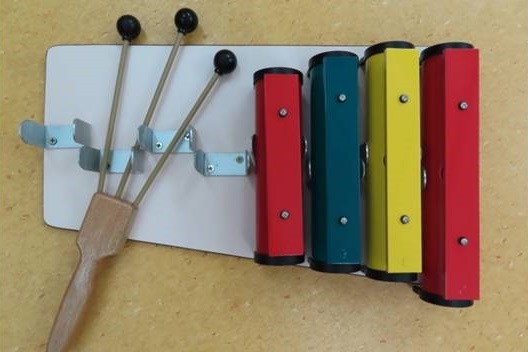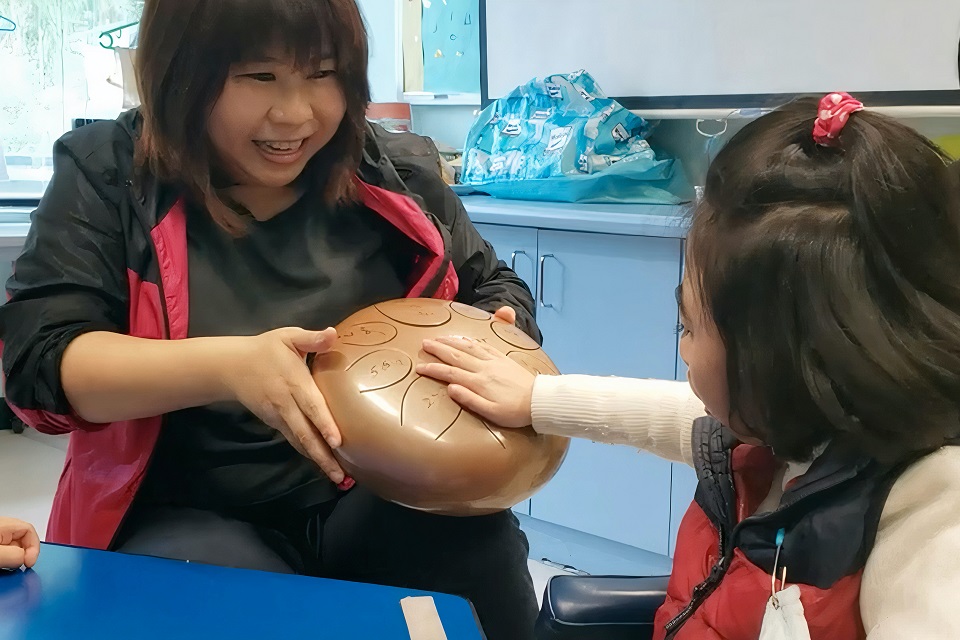Discover HKBU
Supporting music education for students with special needs
28 Jun 2022
While being a fun activity, learning music can help young children develop their interests and potential.. Music is a subject under the Arts Education Curriculum of the Education Bureau. Under the same curriculum framework, music is an essential subject in both mainstream schools and special schools.
A three-year project led by HKBU has helped three special schools develop adapted music curriculums and music teaching strategies based on each school’s specific requirements. Through the project, the participating schools have implemented four school-based adapted music programmes for students from the primary to the senior secondary levels with different grades of intellectual disability (ID).
Professional training for special school music teachers
Led by Dr Marina Wong, Associate Professor of the Department of Education Studies, the HKBU team was granted HK$2.6 million by the Quality Education Fund (QEF) to provide professional support to special schools in Hong Kong so as to foster the development of adapted music curriculums for students with ID.
“Teachers with a background in music education may not have received much training on teaching students with special educational needs, while special school teachers may not be trained in teaching music,” says Dr Wong of the challenges music teachers in special schools may face. “It is necessary for special school music teachers to have professional development opportunities and support in designing and teaching adapted music curriculums.”
To this end, the HKBU team provided a series of training workshops and experience-sharing forums for music teachers from different special schools in Hong Kong to enhance their professional capacity in devising and employing effective music teaching strategies.
In the past three years, Dr Wong and her team further supported three special schools in developing school-based adapted music programmes that aim to help students appreciate, create and play music. The new adapted programmes focus on teaching musical concepts relevant to the students’ needs and capabilities. Based on the teaching objectives and the expected learning outcomes, the teachers have tailored different classroom activities and adopted various strategies such as the use of visual aids and adapted musical instruments.
Fostering the expression of musical creativity
One of the participating special schools is the Mary Rose School, which has implemented two adapted music curriculums for students with mild and moderate ID, respectively. Ms Ho, a music teacher from the school, says that compared with the existing curriculums, the new curriculums focus more on the teaching and learning of musical concepts. To help the students learn to read music notation, she uses numbered musical notation and colours to indicate different pitches in a song, and the students are able to match the musical notes with the respective numbers and colours. Ms Ho adds that the new curriculums also help increase the students’ motivation to express their creativity, for example, during composing activities the students work together to create melodies and sing. These interactive activities can better engage the students and let them enjoy the creative process of music-making.
Caritas Jockey Club Lok Yan School has developed and implemented an adapted music programme for students from the primary one to the secondary six levels with severe ID. The students are taught musical elements, such as tonality and tone colours, and they are encouraged to explore different sounds. The school’s music teacher, Ms Lau, says that the new programme introduces different sensory inputs, such as changing the colours of the lights in the classroom according to the song’s composition, so that students with visual and hearing impairments can better experience the music. She also observes that some students display a strong affinity for music, as they nod and tap their feet to the beat, and some are visibly happy when listening to music played in a major key, showing that her students naturally associate the music with positive feelings. Ms Lau says that the students with multiple disabilities can learn to play and create music by using adapted musical instruments installed with adjustable frames.
This QEF project is part of the knowledge-transfer outcome of Dr Wong’s projects on creativity and adapted music curriculum for students with ID, which were supported by the General Research Fund. It has successfully contributed to the development of adapted music curriculums for special schools for students with ID and the music teachers who participated in the project.
Dr Wong plans to work with other special schools to further develop adapted music curriculums and teaching strategies according to their students’ learning needs. “Our project has not only helped special school teachers to foster music education, but it also shows that students with ID are capable of learning music,” Dr Wong says. “By adapting the learning objectives and musical activities, the schools can provide the students with learning opportunities based on their needs and capabilities, so that they can enjoy learning music and express their musical creativity.”
